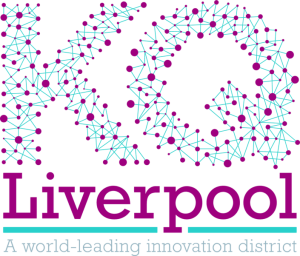New Mental Health Research Centre is established in KQ Liverpool
Mersey Care NHS Foundation Trust and the University of Liverpool have teamed up to create the first ever Mental Health Research for Innovation Centre (M-RIC), where service users co-design the innovations they need and want, alongside health professionals, researchers, industry partners, and public advisers.
The Centre will be awarded £10.5 million of government funding from the Office for Life Sciences and the National Institute for Health and Care Research. It is part of the national ‘Mental Health Mission’ which aims to accelerate mental health research through a UK network of leading investigators called the National Institute for Health and Care Research (NIHR) Mental Health Translational Research Collaboration which includes M-RIC in Liverpool.
M-RIC will create a world first ‘learning system’ where treatments improve the more they are used, studied and refined. The focus will be on under-researched areas such as early intervention in psychosis, depression, and children and young people’s mental health. Research will underpin Liverpool City Region’s commitment to service users, providing easy access to clinical trials and increasing their involvement in better care, closer to home.
Professor Joe Rafferty CBE, Mersey Care’s Chief Executive, said:
“Investment in mental health research has huge potential to boost economic growth, reduce health inequalities, and address the associated £13bn per annum the UK economy loses in productivity to poor mental health.
“To improve mental health, the Centre will advance understanding of how mental, physical, and social conditions are interlinked, and trial new interventions with industry in real life settings.”
Professor Iain Buchan, the University of Liverpool’s Associate Pro Vice-Chancellor for Innovation, explained:
“Mental health is vital to us as individuals, families, and communities, yet despite advances in public health and healthcare, mental health has been declining, particularly in disadvantaged areas like Liverpool.
“Our Centre will have particular depth in mental health data science and engineering, driving innovations for a connected world – continuously improving as the research underpinning them is embedded in mental health services.”
The data-sharing required for the project will be facilitated by Liverpool City Region’s Civic Data Co-operative (CDC) which uses data to deliver better care for residents.
Liverpool City Region Mayor Steve Rotheram said:
“The COVID-19 pandemic has exacerbated many of the health inequalities that exist in our society today – few more so than the extreme disparities in mental health support and funding. Coupled with the spiralling cost of living, it’s little surprise our country is now in the midst of a mental health crisis – which is costing the UK economy nearly £118bn every year.
“It’s one of the many reasons we invested in an ethical Civic Data Cooperative, to allow local experts to analyse our residents’ health and wellbeing needs and to help us improve care and service delivery locally.
“Our area has been a global leader in health research and innovation for centuries, and it’s fantastic to see this legacy continue today with the Mental Health Research for Innovation Centre. I’m really looking forward to seeing how it helps us identify and explore new, improved ways to treat the mental health and wellbeing of our 1.6 million residents.”
Professor Nusrat Husain, Mersey Care’s Director of Research and Innovation, and Global Centre for Research on Mental Health Inequalities, added:
“The investment for innovation in mental health provides important opportunities to build upon our existing work to address mental health inequalities.
“For example digital technologies are helping to improve access to mental health services and becoming an important part of our clinical practice. These innovations in the way we deliver mental healthcare will not only have an impact on Liverpool City Region, but also nationally and globally.”

